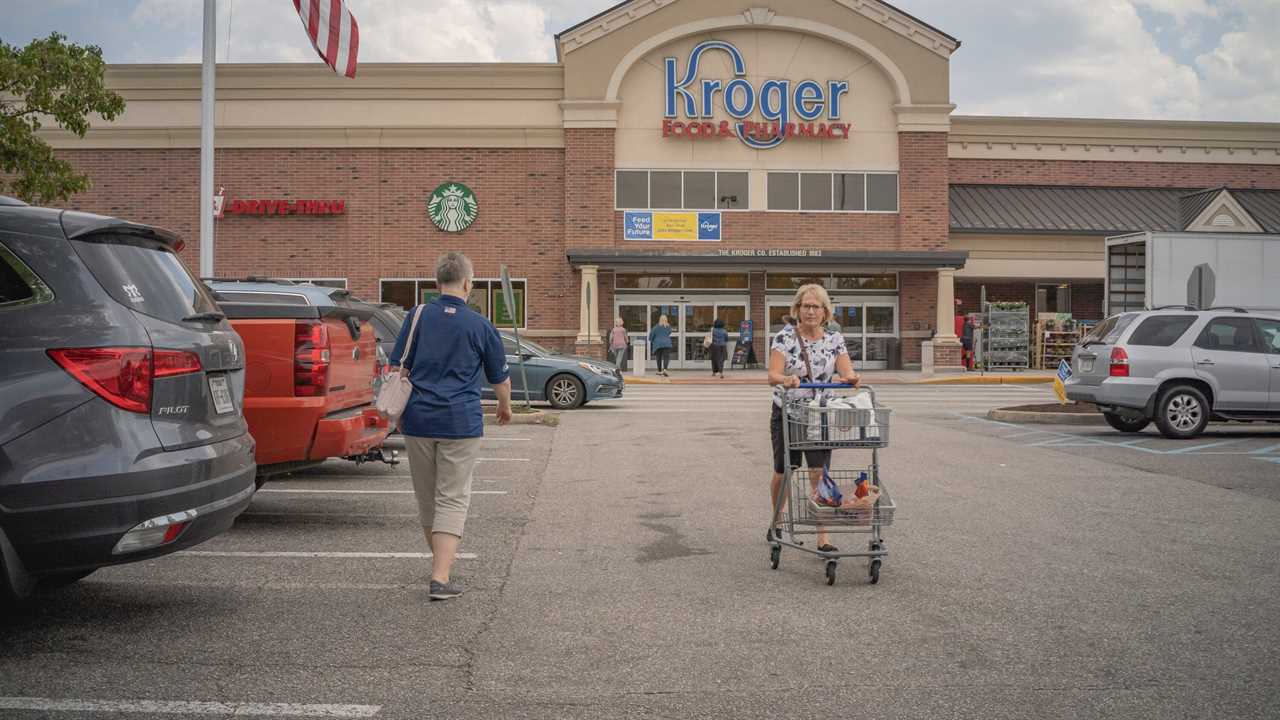
The grocery giant Kroger announced plans on Friday to acquire Albertsons in a deal that could reshape the supermarket landscape in the United States, uniting the country’s largest supermarket chains at a time when rising costs and competition from Walmart and Amazon squeeze the industry.
But the deal, which values Albertsons at about $24.6 billion including debt, is likely to invite intense scrutiny from regulators who are focused on the potential for large companies to affect prices, and have a history of blocking deals that may directly impact consumers. Even before the deal was announced Friday, consumer advocates had raised objections to its possibility.
The deal would bring together chains including Ralphs, Safeway, and Vons, among a handful of others.
Kroger and Albertsons operate nearly 5,000 stores across the country, as well as pharmacies and gas stations. But their combined annual revenue of $209 billion last year falls short of Walmart’s annual grocery sales, of about $218 billion. Though Amazon is a smaller presence in the grocery business, it is also pressuring rivals as it reaches further into every corner of the retail market with its delivery services.
Both grocers are coming off pandemic highs. Their sales soared as homebound customers stocked up on food, but they are now facing significant pressure as inflation cuts into their profit margins and customers return to eating outside their homes. That’s while Amazon and Walmart have invested in the digital and delivery parts of their businesses.
“This is a strategic action to try to keep the customers they won during Covid and enhance their experience, so they’re more competitive,” said Michael Montani, an analyst at Evercore ISI.
Kroger will pay $34.10 a share to acquire Albertsons, but Albertsons shares fell on Friday, a sign that investors may also be skeptical that the deal will get past regulators. Soon after the start of trading on Friday, the stock was trading at about $27 a share, about 21 percent below the offer price.
Business & Economy: Latest Updates
- Takeaways from another painful inflation report.
- Disappointing inflation data keeps Democrats on defense ahead of midterm elections.
- Rent inflation remained rapid, a troubling sign.
To address regulatory scrutiny, Kroger and Albertsons said they planned to sell stores to competitors, and would consider spinning off between 100 and 375 stores into a separate stand-alone company. Analysts have pointed to a overlap between the two grocers, particularly on the West Coast, as a likely source of divestitures.
It’s not yet clear if that will be enough, however. Lina Khan, who leads the Federal Trade Commission, which is likely to review the deal, has in the past expressed skepticism that such moves are sufficient to allay antitrust concerns.
In announcing the deal, Kroger sought to ease concerns about the impact on consumers by saying that it expects to save about half a billion in costs, which it plans to use to “reduce prices for customers.”
Though cost savings in acquisitions often come from layoffs, the grocers may also point to fact that their workforces are unionized as part of their discussions with regulators. The Biden administration has been a significant proponent of unions. Neither Walmart nor Amazon are unionized at a large scale.
Consumer protection groups raised concerns about the deal following reports of a possible merger on Thursday. The American Economic Liberties Project, a nonprofit that promotes antitrust legislation, criticized it as a “bad deal for consumers, workers and communities.”
“There is no reason to allow two of the biggest supermarket chains in the country to merge — especially with food prices already soaring,” Sarah Miller, the group’s executive, said in a statement on Thursday.
Kroger, based in Cincinnati and founded in 1883, operates 2,750 grocery stores across the United States under banners that include Ralphs, Dillons and Harris Teeter and has a market capitalization of about $32 billion. Albertsons, based in Boise, Idaho, and founded in 1939, runs 2,200 supermarkets under names like Albertsons, Safeway and Vons and has a market capitalization of roughly $15 billion.
Kroger’s chairman and chief executive, Rodney McMullen, will remain in that role of the combined company, as will Kroger’s chief financial officer, Gary Millerchip. The companies expect to close the deal in early 2024.
Did you miss our previous article...
https://trendinginthenews.com/tech-giants/googles-move-to-include-truth-social-in-app-store-buoys-investor-confidence






